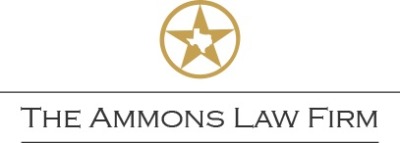Corporate Liability in Commercial Trucking Accidents
The growth of national logistics and fleet operations has made trucking companies more vulnerable to civil litigation. When safety protocols are overlooked and vehicles are sent onto the road with mechanical issues or undertrained drivers, the consequences can be catastrophic. These cases often involve serious injury or death and prompt legal questions about corporate oversight, especially when a wrongful death attorney is evaluating whether the company’s actions contributed to a fatal crash.
One common scenario arises after being hit by a semi-truck while pulled over on the shoulder. In these situations, fault may not rest solely with the driver but with the company that hired, scheduled, and supervised that driver. Claims are frequently filed against employers who failed to follow federal trucking regulations, such as proper rest periods or regular vehicle inspections. To prove liability, attorneys focus on driver logs, GPS records, and internal policies to uncover systemic failures.
Negligent Hiring and the Role of Fatigue in Commercial Crashes
Driver fatigue remains one of the leading causes of trucking accidents, especially in commercial operations where delivery quotas and scheduling pressure can encourage unsafe driving behavior. A key legal question often emerges: a fatigued truck driver’s employer can be held accountable. When evidence shows that the company ignored hours-of-service violations or failed to act on known safety risks, the answer is often yes.
Regulatory violations, including skipped breaks or excessive driving hours logged through electronic devices, can support claims of negligent supervision. These cases rely heavily on documentation. Legal teams may also pursue claims for negligent hiring when companies place drivers behind the wheel despite poor driving histories or revoked credentials. In these cases, responsibility extends beyond the cab and into the corporate offices where decisions were made.
Mechanical Failures and the Scope of Carrier Responsibility
Vehicle maintenance is another critical component in determining liability. Many plaintiffs ask whether negligent inspection or mechanical error can make the carrier responsible. In short, yes. Commercial carriers are required to inspect and maintain their vehicles regularly. When they fail to identify brake issues, tire wear, or steering instability, they may be held accountable for the resulting harm.
In more complex cases, responsibility extends beyond the carrier to third-party mechanics or parts manufacturers. For example, if airbags failed to deploy properly during a crash, the case may become a product liability case involving faulty airbags, adding another layer of legal complexity. A successful legal approach requires coordination between engineering experts, medical professionals, and litigation teams to prove how these failures contributed to the injuries.
Evidence Collection After High-Impact Trucking Incidents
The time immediately following a crash is critical. Victims often seek legal support after being rear-ended by a semi while slowing in traffic or forced off the road by an aggressive truck driver. In both cases, gathering black box data, dashcam footage, and maintenance records can make the difference between a successful claim and a stalled case.
In commercial cases, evidence often disappears quickly. Fleet operators may deploy rapid-response teams to the scene, which underscores the importance of retaining counsel immediately. Attorneys working these cases know how to file preservation letters and emergency motions to prevent critical data from being deleted or overwritten. Whether the issue involves driver behavior, component failure, or dispatch errors, detailed records are vital to assigning legal fault and recovering damages.
How Trucking Lawsuits Differ from Standard Vehicle Claims
Many injured parties ask their attorneys to explain how lawsuits involving commercial trucks differ from standard car accident claims. The answer lies in the complexity of federal oversight, the number of potentially liable parties, and the higher level of documentation required. Trucking companies must comply with a wide array of federal regulations, including those governing driver conduct, cargo securement, and vehicle maintenance.
Additionally, commercial carriers carry larger insurance policies, and their insurers are often more aggressive in defending claims. Coordinating a case against a trucking company is rarely straightforward. It involves multiple layers of discovery, depositions from fleet managers and mechanics, and third-party contract analysis. Clients working with skilled Personal Injury Attorneys are better positioned to hold the responsible parties accountable and secure fair compensation.
This content is for informational purposes only and does not constitute legal advice. No attorney-client relationship is formed by reading this article. Laws may vary by jurisdiction. Please consult a qualified attorney licensed in your state for legal guidance specific to your situation.















